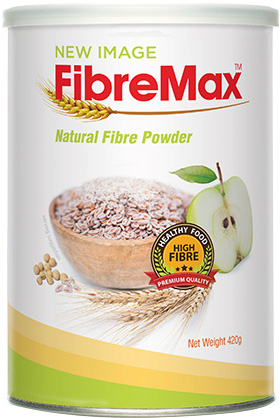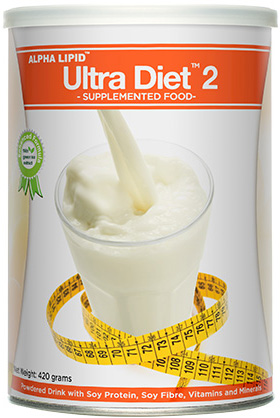

'And now there is a new fat free, gluten free, dairy free, carb free product on the market that will fix all your problems'. Welcome to dieting déjà vu. Trying to shed a few pounds is always harder than it sounds. There is no 'one size fits all'. There are also common fat loss mistakes you may be making that prevent you from reaching your goals.
We’ve all been here before. ‘And now there is a new fat free, gluten free, dairy free, carb free product on the market that will fix all your problems’. Welcome to dieting déjà vu. Trying to shed a few pounds is always harder than it sounds. There is no ‘one size fits all’. There are also common fat loss mistakes you may be making that prevent you from reaching your goals.
Let’s cut straight to the point: Low-fat foods aren’t good for you. We have all learnt in recent years about how important fat is in our diets. It is an essential role in all aspects of our health. So why do people still fear ‘full fat’ products? Low fat or fat free doesn’t always necessarily mean low calorie or calorie free.These products certainly try to make up for their lack of fat. When they take out the fat, they tend to pour in a lot of other bad things like sugar and chemicals. Depending on the product, it may all be sugar of some sort.
If you do not expend this additional energy, then it may well be stored as fat making your 98% fat free product not so fat free after all. When you eat a fat free or ‘lite’ option you are more likely to be hungry again in 10 minutes. Sound familiar? This is because they are missing those satiating fats but when you throw in extra sugar and additives then it will spike your blood sugar levels causing those hunger pangs. Full fat products are satisfying, tasty and slower to digest so they will keep you fuller for longer, so you are less likely to overeat.
Do you ever wonder why the number on the scales don’t move or be down one day, and up the next? To be honest your weight can fluctuate more than the stock market. It can fluctuate hugely over the course of a 24-48 hour period. Depending on what you ate today, how much water you drank, consumed tea or coffee, if there was sodium in your food, what kind of clothing you were wearing, what time of day you weigh yourself, your weight will be different. Weight doesn’t tell the entire story. Body fat composition can change for the better by decreasing body fat and increasing muscle mass and the scale will only show a weight gain. This can be disheartening, even as your clothes start to fit better. Try to keep track of progress with one of these three methods: measurements, callipers or photos.
A daily workout might seem like a no-brainer if you want to lose weight. While exercising might shape your middle and tone you up, there can be too much of a good thing. Part of it comes down to cortisol, the stress hormone that makes you retain belly fat. Pushing your body past its limits through highintensity, long-duration exercise can mess with that hormone. Your body essentially has exhausted its capacity to fight, but you continue to put it in ‘fight or flight’ mode by over exercising. This can throw your hormones out of balance, causing fatigue, poor performance, fogginess, and weight gain — especially around your middle. To prevent fatigue, stay away from exercising twice a day and give your body time to rest and recover between workouts, take your rest days, this is when your body has time to break down all that has been happening during your workouts.
 Fibre helps control your appetite and keeps you fuller for longer. As fibre is filling this may help protect your waistline. You can increase your fibre by eating more fruits, vegetables, beans and legumes. We want to be aiming for at least 25 grams of total fibre per day for females and 30 grams for males. If this seems like a lot to you, you might want to look into a high-quality supplement such as FibreMax™.
Fibre helps control your appetite and keeps you fuller for longer. As fibre is filling this may help protect your waistline. You can increase your fibre by eating more fruits, vegetables, beans and legumes. We want to be aiming for at least 25 grams of total fibre per day for females and 30 grams for males. If this seems like a lot to you, you might want to look into a high-quality supplement such as FibreMax™.
Drinking fruit juices, fizzy drinks and other beverages might be making you gain fat. Your brain doesn’t register calories from beverages the same way it registers calories from foods, meaning you’re likely to compensate by eating more food later. Get your calories from whole foods rather than drinks. Whole foods are higher in fibre and take more time to chew and swallow, which means your brain has more time to process hunger signals.
Did you know that being only 3% dehydrated is enough to cause fatigue, tiredness and that mental fogginess around your head? Not only that, it helps with your digestion, so will help process your food a lot quicker. Not drinking enough water can make you thirsty. Well obviously, but interestingly, thirst may be mistaken as a sign of hunger or food cravings. If you were to drink two cups of water right before breakfast, then you might decrease your calories by 22%. Best of all, water has zero calories. If you replace sugar-sweetened beverages with water, you may reduce calorie intake by up to 200 calories per day. If you find plain water boring, try adding slices of cucumber, lemon or your favourite fruit to add a dash of flavour.
 Protein keeps your body working as it should. It is the key to a fitter, stronger, leaner you. But that’s only if you’re eating it right. Are you eating too much protein? Or are you eating no protein at all? Most people don’t keep tabs on their protein intake, and far fewer folks know how much protein is ideal for their weight, activity level, and fitness goals. Eating enough protein for YOU not only helps you burn fat, but also keeps you fuller for longer. So how much should you have? We need to get the right amount, at the right time, and in the right way. For protein is 0.8 grams of protein per kilogram (or per 2.2 pounds) of body weight. We want to aim to eat a variety of leafy greens, veggies, legumes, fruits and nuts each day along with meat and fish. Alternatively, for a quick easy snack you can supplement with Alpha Lipid™ UDII™.
Protein keeps your body working as it should. It is the key to a fitter, stronger, leaner you. But that’s only if you’re eating it right. Are you eating too much protein? Or are you eating no protein at all? Most people don’t keep tabs on their protein intake, and far fewer folks know how much protein is ideal for their weight, activity level, and fitness goals. Eating enough protein for YOU not only helps you burn fat, but also keeps you fuller for longer. So how much should you have? We need to get the right amount, at the right time, and in the right way. For protein is 0.8 grams of protein per kilogram (or per 2.2 pounds) of body weight. We want to aim to eat a variety of leafy greens, veggies, legumes, fruits and nuts each day along with meat and fish. Alternatively, for a quick easy snack you can supplement with Alpha Lipid™ UDII™.
 Literally everything starts in your gut. Having a gut that is out of sync can affect many things, including weight loss. If you eat too much food that is highly processed, it can overwhelm your system with empty calories and chemical nasties, but it can also damage your guts ecosystem, destroying the good bacteria that will naturally help you stay at a healthy weight. You can support your guts ecosystem by taking Alpha Lipid™ Colostrum capsules daily. But there is more good news, every bite of food you take, helps to change your guts ecosystem too. A great way to help with a healthy gut is increasing your probiotics. These are tiny microorganisms that your gut loves. Probiotics are often called ‘good bacteria’ because they help keep your gut healthy. You can supplement with a high-quality supplement and they occur naturally in fermented foods such as cultured milk and kombucha etc.
Literally everything starts in your gut. Having a gut that is out of sync can affect many things, including weight loss. If you eat too much food that is highly processed, it can overwhelm your system with empty calories and chemical nasties, but it can also damage your guts ecosystem, destroying the good bacteria that will naturally help you stay at a healthy weight. You can support your guts ecosystem by taking Alpha Lipid™ Colostrum capsules daily. But there is more good news, every bite of food you take, helps to change your guts ecosystem too. A great way to help with a healthy gut is increasing your probiotics. These are tiny microorganisms that your gut loves. Probiotics are often called ‘good bacteria’ because they help keep your gut healthy. You can supplement with a high-quality supplement and they occur naturally in fermented foods such as cultured milk and kombucha etc.